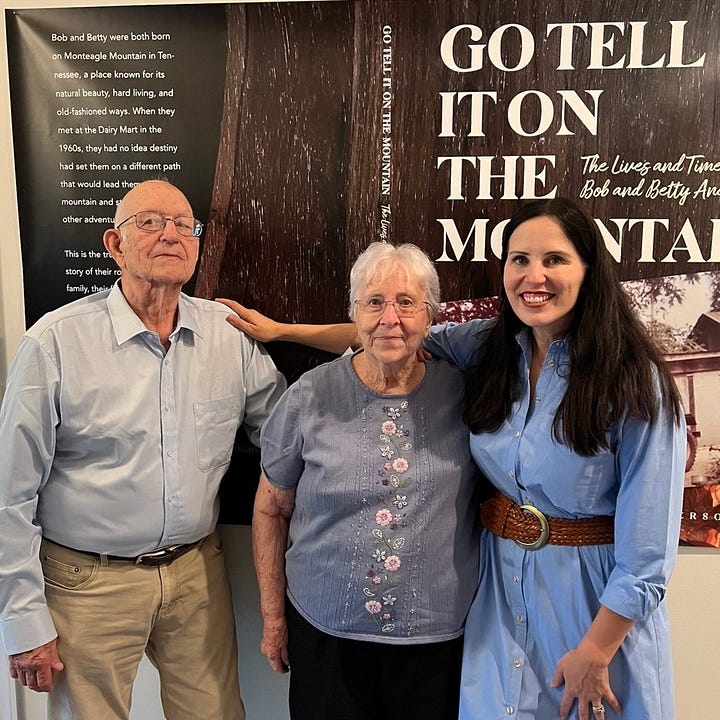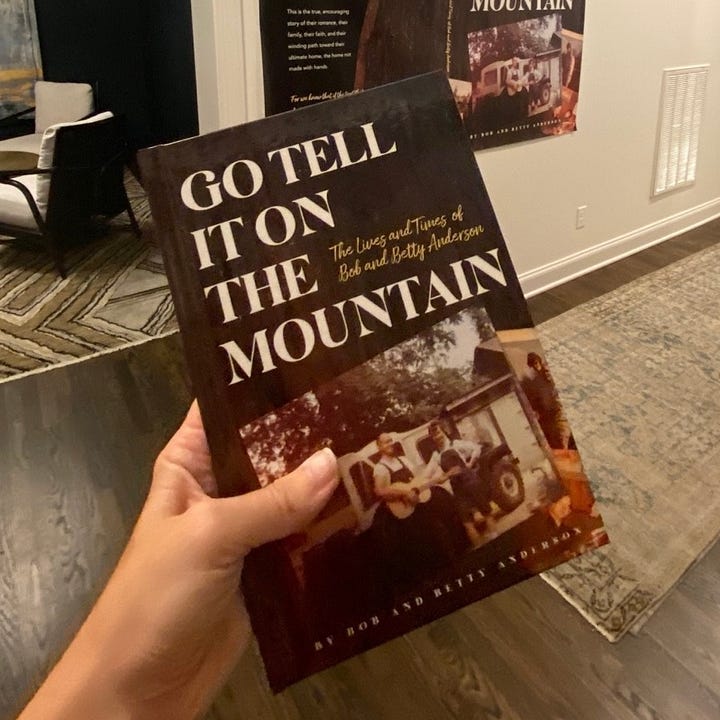French Lessons in Ghostwriting
Nancy French Talks Classic Novels, Personal History, and Life as a Ghost
If you’re looking for a nearly universal sentiment, try this one: I think I’ve got a book in me. Everyone thinks it, though most of us do not. And of those that actually do, most can’t write it. That’s where ghostwriters come in; specifically, that’s where Nancy French comes in.
French has been a ghostwriter for more than a decade now, working with various high-profile authors. Five of those collaborations have landed on the New York Times bestseller list. Along with publishing books under her own name, most recently her memoir, Ghosted: An American Story, French has worked as an investigative journalist and has written for major newspapers and magazines.
Here we talk about her life as both a reader and a writer.

Back in 2020, you decided to read all of the Pulitzer Prize-winning novels since the year you were born. I’ve loved that idea from the minute I first heard it. What would you say you’ve learned from the experience?
I cheated in school and dropped out of college three times without ever graduating. So when it came to books, I knew the SparkNotes versions of the classics, just enough to pass a test but without actually reading the books. In 2020, during the height of the pandemic, I decided to rectify this.
Instead of my preferred, breezy “beach reads,” I vowed to read “important books”—tomes that had cultural significance and literary brilliance. And so began my quest to read all of the winners of the Pulitzer Prize for fiction since I was born. I started in 1974, since I am 49 years old. That’s when I discovered the Pulitzer board did not award the prize that year (and others). In others, like 2023, they awarded two. Regardless, my job would be to read roughly fifty award-winning books.
As Barbara Kingsolver wrote in the last book I read in this endeavor, “a good story doesn’t just copy life, it pushes back on it.” Though I dropped out of school, I know that learning can continue with a library card, a little time, and an amazing reading list. I also know that books are still transporting and important, even in—and especially in—an uncertain and sometimes frightening world.
“Books are still transporting and important, even in—and especially in—an uncertain and sometimes frightening world.”
—Nancy French
What have been your three favorite novels in the project so far?
After all my reading, I ended up having an eclectic mix of favorites: 1986’s Lonesome Dove by Larry McMurtry; 2005’s Gilead by Marilynne Robinson; and 2023’s Demon Copperhead by Barbara Kingsolver.
Your new memoir, Ghosted, covers a lot of ground. You’ve had a fascinating life. I want to focus on your experience as a professional ghostwriter. How did that start for you and what keeps you going?
I began writing for others when Ann Romney asked me to help her fashion a book back when her husband Mitt was running to be the GOP nominee for president of the United States. I jumped on a campaign bus and started writing. That book never saw the light of day, but I later was invited by Bristol Palin to write her memoir. That one became a New York Times best seller, which solidified my occupational path for the next few years.

Looking at your career so far, what’s been the best part of the job and the worst?
I love getting to know people’s stories. The worst part is that you get so close to people and then the project is over and you miss them!
People think being a ghostwriter is like x, but it’s really like y. Fill in those variables for us.
Sometimes people make fun of ghosting as one of the lower levels of writing, but I love getting to know people’s stories and seeing a glimpse of their lives. People think being a ghostwriter is glamorous and fun, and it really is.
When it comes to writing as a profession, we rise or fall based on several factors, but one is certainly our productivity. What’s your one best productivity hack?
I was created to work—I have never had writer’s block, I never struggle for words. I am uniquely made to churn out books! My level of productivity is astonishing and slightly odd, so I don’t pretend to offer advice on this. I think it has something to do with being a mother. Once I gave birth, I realized that time was fleeing and I had to make the most of it.
“People think being a ghostwriter is glamorous and fun, and it really is.”
—Nancy French
You posted about your three favorite words a while back. I knew two: uxoricide (killing one’s wife) and defenestration (chucking someone out a window), but I’d never heard of hodiernal. I’ve resisted the urge to look it up. Instead, I want to hear you explain what it means and how you came to love it.
Hodiernal comes from the Latin word for “today”—which is hodie! I think it is the perfect word—short, precise, and not one of those “ten gallon words” that people throw around. The only problem is that no one knows what it means. So I’ve tried to put it in every article I’ve ever written and it’s never made it past the editing process. I’ll keep trying.
That takes me to questions of style. As a ghostwriter, how do you navigate that for a client? It would seem there’s a tension toward a style that’s so simple as to be nondescript, or to overcorrect and land on something approaching caricature. How do you capture your client’s voice?
It’s actually not very hard. I interview them and record their actual voice and words. Then I have that all recorded perfectly and I just have to clean it up for grammar and story-telling purposes. So I know exactly what words they do and would say in every instance.

As an undertaking, what does telling someone’s story do for you? What does serving as their voice mean to you?
Psalm 139:16–17 says, “All the days ordained for me were written in your book before one of them came to be. How precious to me are your thoughts, O God, how vast is the sum of them.” In other words, God is writing my clients’ story—not me. Not even my client. So I always start with this scripture and it takes the load off of us individually. It is so gratifying to see how God orchestrates other people’s lives.
“Sometimes,” you say in Ghosted, “stories have to marinate a bit before you can figure out their meaning.” I’d love for you to develop that thought in two directions: Personally, how do we process our stories? And professionally, what about deadlines?
Personally, we have to let enough time to pass so that you can look at whatever happened with open eyes. Especially with trauma and abuse, this might take years. I would advise not writing about stuff in the moment—at least not publishing about it—until you’ve had time to process that trauma. However, I’ve found writing about it helps catalyze the healing process.
As to deadlines, don’t share your trauma just because a publisher thinks it would make a good story.
Writing about [trauma] helps catalyze the healing process.
—Nancy French
How should writers distinguish, if at all, between private projects and public work? I’m thinking of the biography you wrote for your parents—a lovely idea—but the question could apply to most any writing not immediately intended for publication, from passion projects to one’s daily journal.
A few years ago, I realized my parents were getting older. So I decided to treat them like my celebrity clients. I went to their house and interviewed them and created a book that I self-published. Then, we had a book launch party at my house for them, and it was so wonderful.
I loved doing this because it allowed me to get to know my mom and dad and their story. I didn’t publish this for the greater world, because my parents were very candid in the book and shared things only for our family.
If you have the occupational margin to add in passion projects like this, I would highly advise it!


Final question: You can invite any three authors for a lengthy meal. Neither time period nor language is an obstacle. Who do you pick, why, and how does the conversation go?
Marilyn Robinson, Alexander Solzhenitsyn, and E.B. White, because of Gilead, the Gulag Archipelago, and Stuart Little/The Elements of Style, respectively. We would eat wonderful food—with Solzhenitsyn getting first dibs—and talk late into the night.
Thanks for reading! If you enjoyed this post, please hit the ❤️ below and share it with your friends.
Not a subscriber? Take a moment and sign up. It’s free for now, and I’ll send you my top-fifteen quotes about books and reading. Thanks again!




Sweet. It was my privilege to help edit Ghosted; it's a fascinating and well-spun yarn.
Completely agree on letting a story marinate. I am always horrified seeing a book has come out by someone who just went through a horrific experience reported in the media a year or so before. I always know that publishers are trying to cash in on public attention when that happens and it seems to me that the person is being victimized all over again by the publisher.